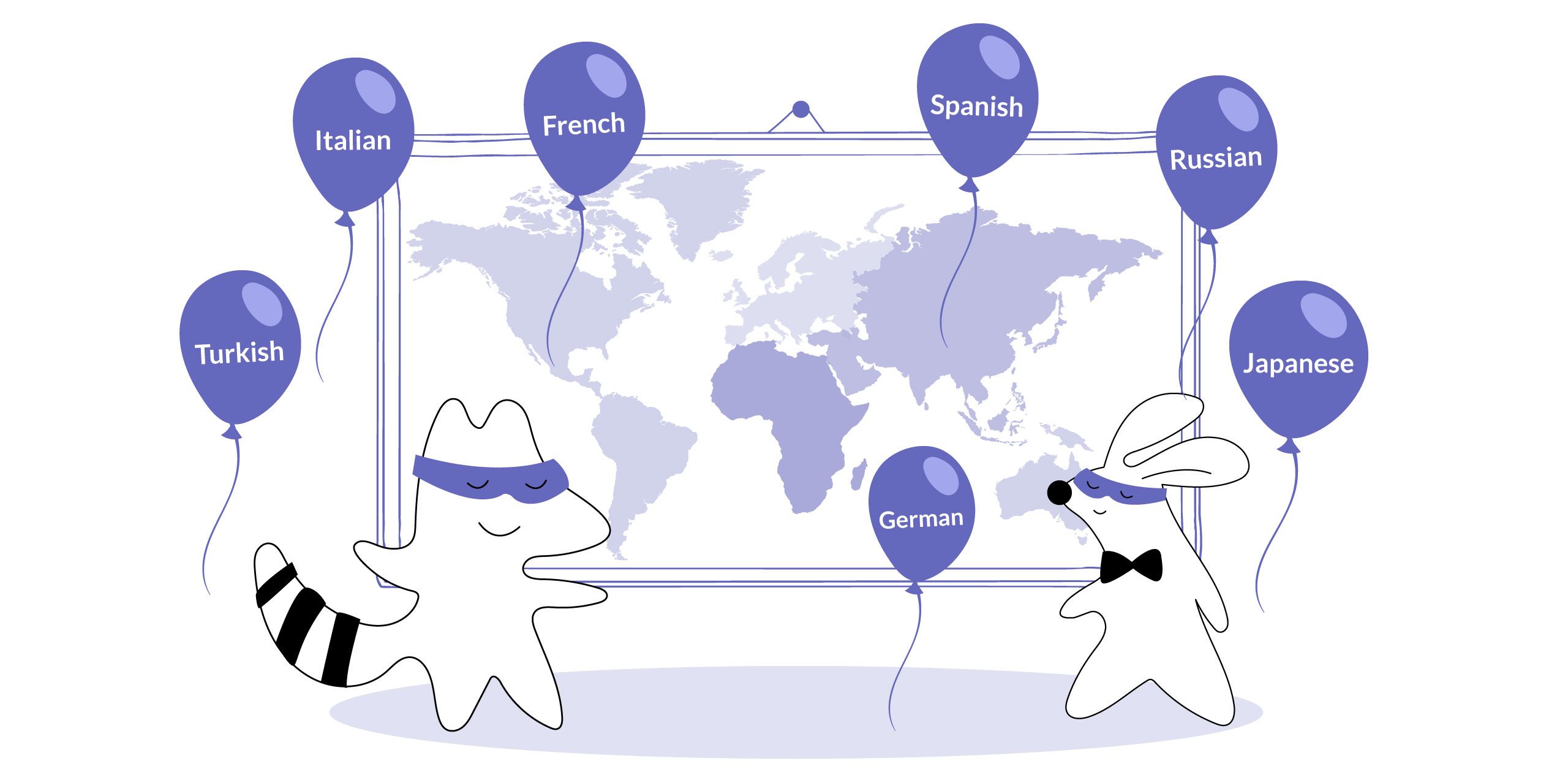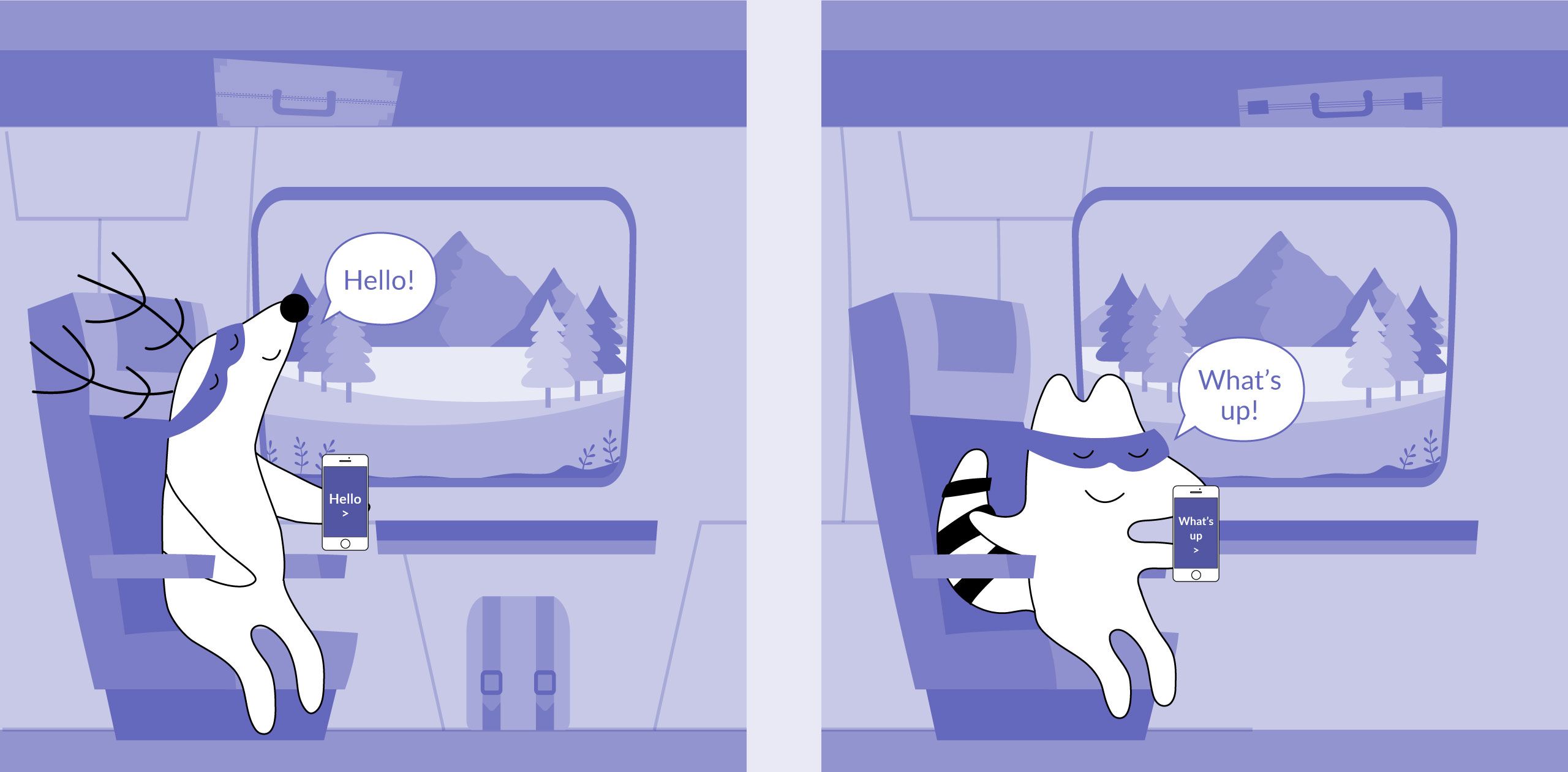
Nowadays, you can stay in touch with others via social media. When you visit Germany and get to know some locals, you will eventually exchange contacts and start texting with them.
The German language, like any other, has its own slang for texting. People want to communicate quickly, which is why they use a shortened form of German. To understand a text message from your new German friend you must be familiar with some standard abbreviations.
You can look at the German chat language as a dialect. There are some new words, or shortened forms of certain words, but the language is the same - so you can understand it quickly. Chatting in German can improve your writing and reading comprehension skills, so don’t avoid it if you get the opportunity to try.
Learn German with Langster
With this short guide, let us help you dive into German internet slang, and get ready for your first chat with German speakers.
The Most Common German SMS Abbreviations
As you know, Germans love creating very long words, but nobody enjoys typing a long German word into their small cellphone keyboard. That is why your German friends, especially young people, will use special slang when sending text messages.
As the English language has had a significant influence over German for the last few decades, there is also a considerable amount of English abbreviations that Germans use in their internet slang. We will go through some common examples of slang that most people use, but also look at some newer short terms that you would find in the younger generation's vocabulary.
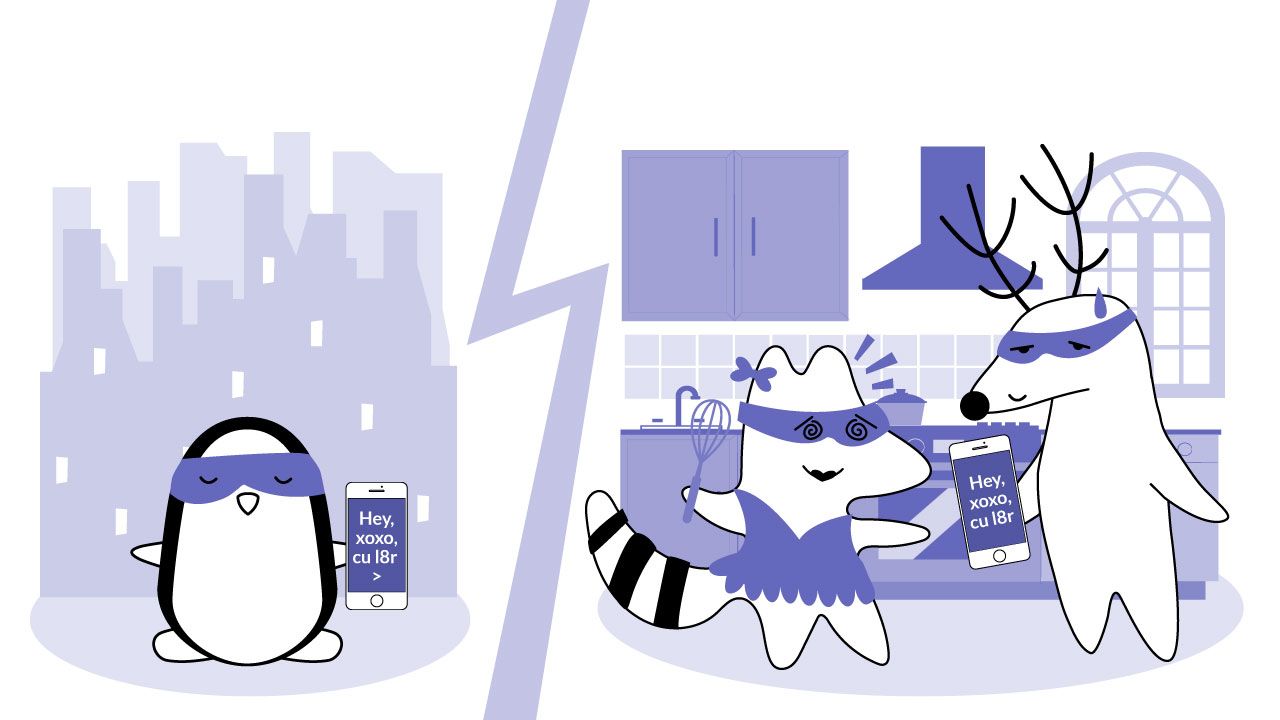
1. Some Official German Abbreviations
As you know, most languages use abbreviations in informal writing, and there are some official short terms that you will get introduced to when learning German. Look at the following examples:
| Abbreviation | German Phrase | Translation |
|---|---|---|
| z.B. | zum Beispiel | for example |
| v.a. | vor allem | especially |
| usw. | und so weiter | and so on |
| Abbreviation | German Phrase | Translation |
|---|---|---|
| z.B. | zum Beispiel | for example |
| v.a. | vor allem | especially |
| usw. | und so weiter | and so on |
Just as you use those abbreviations when writing in German, people use them in text messages too. They are widespread, commonly known, and generally accepted. In contrast to some new German slang abbreviations, these are not associated with poor quality and therefore may be used when messaging coworkers.
2. Short German for Everyone
There are a few words that are very commonly used in the German language, and, if they are too long, people prefer using their shortened forms when chatting. Here is a short list of examples.
| Abbreviation | German Phrase | Translation |
|---|---|---|
| vllt | vielleicht | maybe |
| eig | eigentlich | actually |
| WE | Wochenende | weekend |
| kp | kein Problem | no problem |
| ka | keine Ahnung | no clue |
| Abbreviation | German Phrase | Translation |
|---|---|---|
| vllt | vielleicht | maybe |
| eig | eigentlich | actually |
| WE | Wochenende | weekend |
| kp | kein Problem | no problem |
| ka | keine Ahnung | no clue |
3. Short Ways of Saying Goodbye in a Chat
Saying farewells is very common in most conversations, so Germans got tired of typing entire phrases and found an abbreviation for each word instead.
It is also widespread in Germany to say “hab dich lieb” (I like you), etc., when saying goodbye through texting. It’s not particularly serious, but it more or less replaces the hug you would give your friends when saying goodbye to them in person.

Common Shortened Farewells:
| Abbreviation | German Phrase | Translation |
|---|---|---|
| bb | bis bald | see you soon |
| bd | bis dann | see you then |
| bs | bis später | see you later |
| bm | bis morgen | see you tomorrow |
| lg / vg | liebe Grüße / viele Grüße | kind regards |
| Abbreviation | German Phrase | Translation |
|---|---|---|
| bb | bis bald | see you soon |
| bd | bis dann | see you then |
| bs | bis später | see you later |
| bm | bis morgen | see you tomorrow |
| lg / vg | liebe Grüße / viele Grüße | kind regards |
You will also see variations of the farewell "liebe Grüße,” like "glg" (ganz liebe Grüße - very kind regards) or "vlg" (viele liebe Grüße - lots of kind regards).
4. Common Ways to Express Love Through Texting:
In German, there are different ways to express love towards other people. If you are interested in this topic, you can check out our previous article. The most common phrase that German native speakers use is "hab dich lieb" (literally “I have love for you”).
This phrase is probably the German equivalent of the English "I like you." If people want to express stronger love, they can also text "Ich liebe dich" (I love you). The following abbreviations are commonly used, especially among younger people:
| Abbreviation | German Phrase | Translation |
|---|---|---|
| hdl | hab dich lieb | I like you |
| hdgdl | hab dich ganz doll lieb | I like you a lot |
| ild | ich liebe dich | I love you |
| Abbreviation | German Phrase | Translation |
|---|---|---|
| hdl | hab dich lieb | I like you |
| hdgdl | hab dich ganz doll lieb | I like you a lot |
| ild | ich liebe dich | I love you |
Many friend groups create their own German internet slang. Some teenagers have gotten very creative with expressing their love via texting, and very long abbreviations have appeared.
One example is "Ildüaadwbzmuz," which stands for "Ich liebe dich über alles auf der Welt bis zum Mond und zurück" (I love you more than everything else in this world to the moon and back).
A very long abbreviation loses its purpose of saving time and energy, which is why it didn't catch on and is mostly just used in modern text language by younger generations.
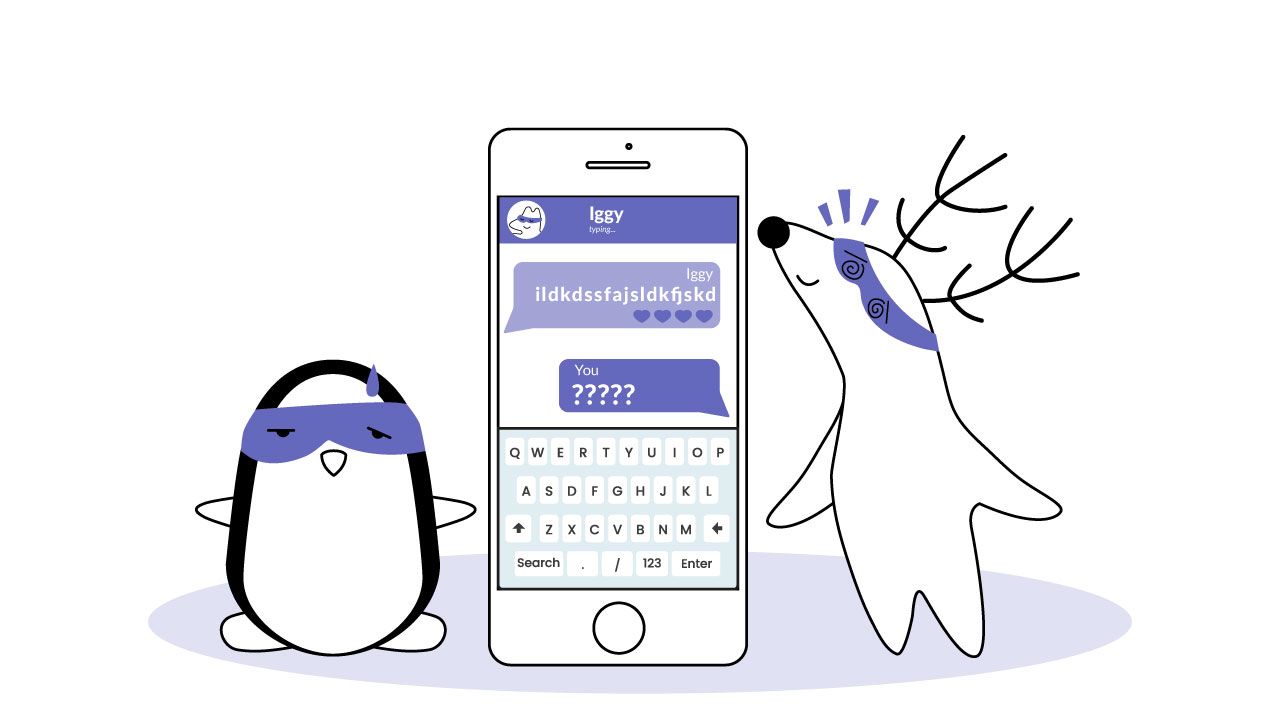
5. Short German Slang for Younger People
As younger generations usually communicate more through social media than older people, they use more abbreviations when chatting. They do it to both save time and to show they know the latest slang. Have a look at these examples:
| Abbreviation | German Phrase | Translation |
|---|---|---|
| ak | alles klar? | all good? |
| kp / kd | kein problem/ kein Ding | no problem |
| ka | keine ahnung | no clue |
| ok | in Ordnung | ok |
| vv | viel Vergnügen | have fun |
| gn8 | gute Nacht | good night |
| Abbreviation | German Phrase | Translation |
|---|---|---|
| ak | alles klar? | all good? |
| kp / kd | kein problem/ kein Ding | no problem |
| ka | keine ahnung | no clue |
| ok | in Ordnung | ok |
| vv | viel Vergnügen | have fun |
| gn8 | gute Nacht | good night |
Be aware that too many shortened terms in a text message can be a sign of poor language skills, as words lose their quality. Therefore, take your time to text full words to people you don't know well, especially when they are older.
Furthermore, if there are too many short terms and people feel like they need to use a dictionary to decipher your message, the idea of saving time gets lost. So don't overdo it!
Common English Short Terms in German
The influence of the English language is significant in Germany, as Germans listen to music, watch movies, TV series, videos, and read books in English. A high percentage of young people speak English almost fluently and have started to incorporate English words into their day-to-day vocabulary.
Here are a few examples - you might know some of them as they are pretty internationalized among the internet savvy generations of this world:
| Abbreviation | Translation |
|---|---|
| asap | as soon as possible |
| btw | by the way |
| xoxo | hugs and kisses |
| thx | thanks |
| lol | laughing out loud |
| np | no problem |
| jk | just kidding |
| wtf | what the f*ck / what the heck |
| Abbreviation | Translation |
|---|---|
| asap | as soon as possible |
| btw | by the way |
| xoxo | hugs and kisses |
| thx | thanks |
| lol | laughing out loud |
| np | no problem |
| jk | just kidding |
| wtf | what the f*ck / what the heck |
You can use these short terms in your German chats, as you would in your own language, because they express the same purpose. Be aware though that not every German knows English or the abbreviations of certain English words.
Consider the age of your friends, and the context in which you met them, to decide if texting with English abbreviations is a good idea. However, Germans are usually direct people and will tell you if they don't understand your writing.
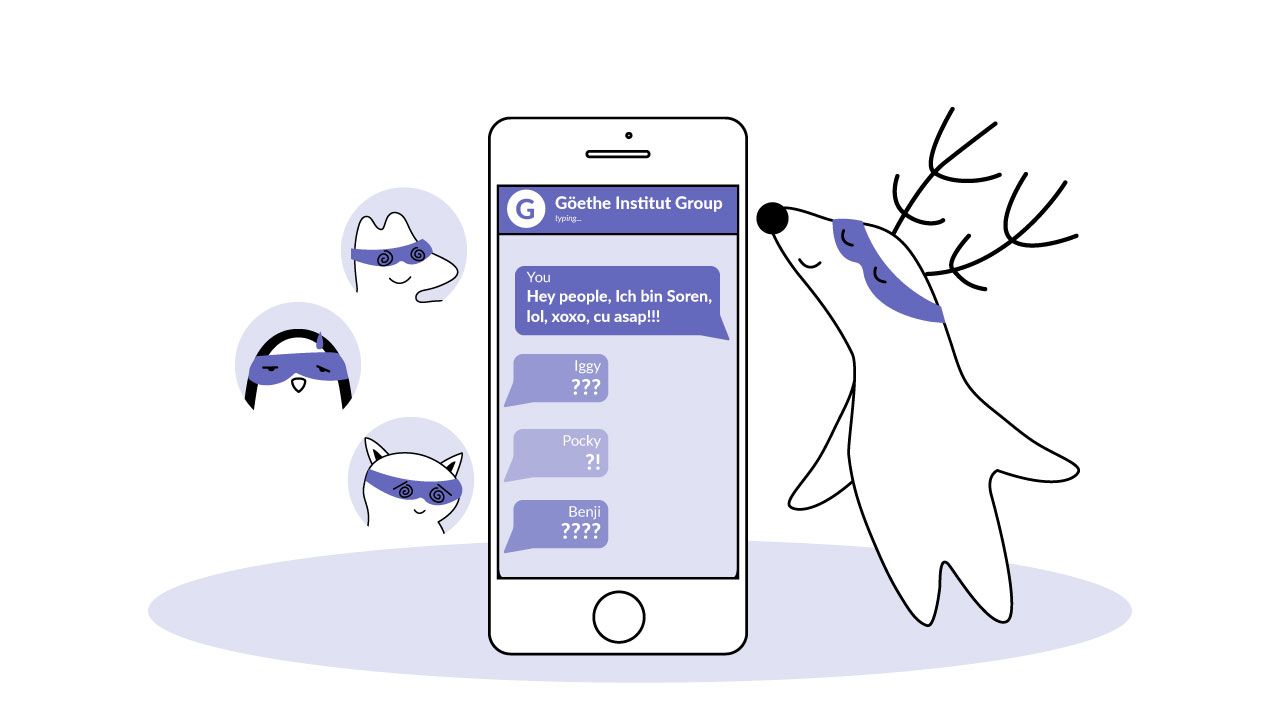
LG and HDL!
We hope we were able to successfully introduce you to the world of German slang with this article, and that you are looking forward to writing your first text message to a German friend. Just remember to check out your friend’s texting style before overwhelming them with abbreviations.
Saving time by using short terms can be easy and helpful in your daily life. Nevertheless, a language often loses quality when you replace a word with letters, which is why you might not want to bring these shortened forms to your language often.
The world is moving fast, but we can find enough time to communicate our thoughts in entire sentences and words. Don’t get too lazy when communicating with your boss or writing in a formal context. Language is beautiful!
When texting in German, simply start with a few abbreviations and see how the other person reacts. Bs (bis später!)








